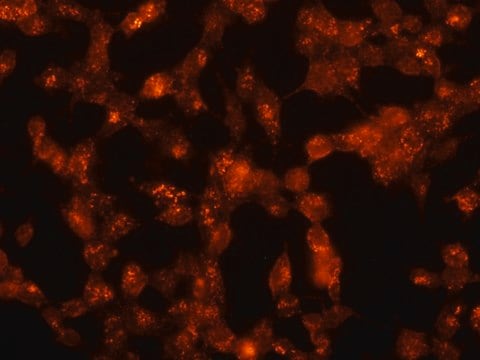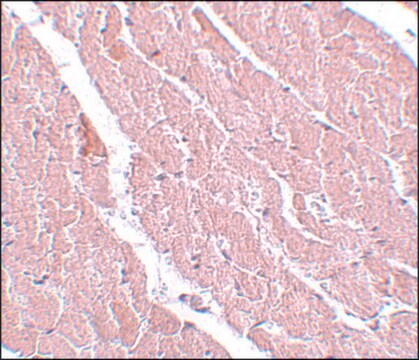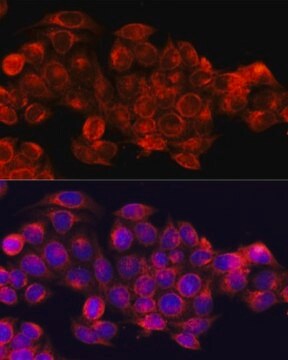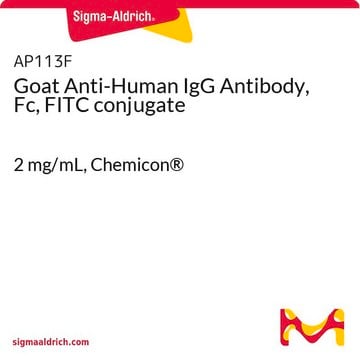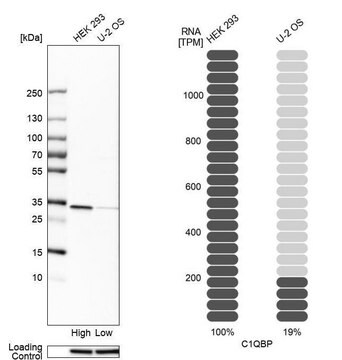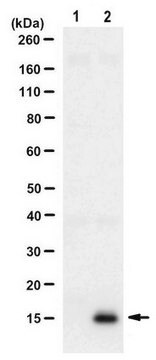ABC344
Anti-ATG13 Antibody
from rabbit, purified by affinity chromatography
Synonym(s):
Autophagy-related protein 13
About This Item
Recommended Products
biological source
rabbit
Quality Level
antibody form
affinity isolated antibody
antibody product type
primary antibodies
clone
polyclonal
purified by
affinity chromatography
species reactivity
mouse, rat
species reactivity (predicted by homology)
human (immunogen homology)
technique(s)
immunofluorescence: suitable
immunohistochemistry: suitable
western blot: suitable
UniProt accession no.
shipped in
wet ice
target post-translational modification
unmodified
Gene Information
human ... ATG13(9776)
mouse ... Atg13(51897)
General description
Immunogen
Application
Immunofluorescence Analysis: 20 μg/mL from a representative lot detected ATG13 in mouse heart cells.
Apoptosis & Cancer
Apoptosis - Additional
Quality
Western Blotting/Peptide Inhibition Assay Analysis: 1 µg/mL of this antibody detected ATG13 in 15 µg of rat heart tissue lysate.
Target description
Physical form
Storage and Stability
Analysis Note
Rat heart tissue lysate
Other Notes
Disclaimer
Not finding the right product?
Try our Product Selector Tool.
Storage Class Code
10 - Combustible liquids
WGK
WGK 2
Flash Point(F)
Not applicable
Flash Point(C)
Not applicable
Certificates of Analysis (COA)
Search for Certificates of Analysis (COA) by entering the products Lot/Batch Number. Lot and Batch Numbers can be found on a product’s label following the words ‘Lot’ or ‘Batch’.
Already Own This Product?
Find documentation for the products that you have recently purchased in the Document Library.
Our team of scientists has experience in all areas of research including Life Science, Material Science, Chemical Synthesis, Chromatography, Analytical and many others.
Contact Technical Service
